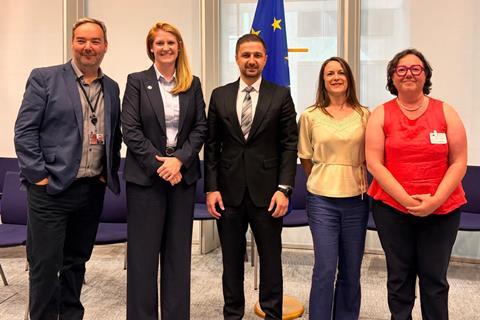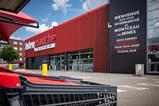Industry leaders met with European Parliament members to discuss the inclusion of cold chain infrastructure in the EU’s new Preparedness Union Strategy, highlighting the need for investment in facilities, vehicles and skills

The Global Cold Chain Alliance (GCCA) has urged European leaders to recognise the importance of investment in temperature-controlled logistics for the resilience of Europe’s food supply chain.
The association, which aims to act as a voice for the global temperature-controlled logistics business, issued the call during a round table meeting in Brussels, where leaders of Europe’s cold chain met with members of the European Parliament to discuss the future of Europe’s food supply chains.
Those talks came at a vital time, as the European Parliament develops a new EU Preparedness Union Strategy that could enhance Europe’s resilience and crisis management capabilities, including plans for a Europe-wide approach to stockpiling food.
GCCA’s director for Europe Julie Hanson said: “Recent geopolitical, economic, health and extreme weather crises have highlighted the vulnerabilities of Europe’s food supply chain, and we should expect major disruptions of this type to increase in severity and frequency over the coming decades.
She added that coldstorage and refrigerated transportation were “often overlooked”, despite being central to Europe’s food supply chain resilience.
“EU policy must support and incentivise investment into the facilities, vehicles, resources and skills that the cold chain needs for today and for the future,” she added. “We were pleased to help facilitate such an important conversation, and I thank Adrian-George Axinia MEP and his colleagues for their important contributions.”
Hosted by Romanian MEP Axinia, the meeting also featured contributions also from Daniel Buda MEP (Romania), Maria Georgiana Teodorescu MEP (Romania), Sander Smit MEP (The Netherlands), Piotr Muller MEP (Poland), and Gheorghe Piperea (Romania).
Industry leaders in attendance included representatives from GCCA, from the European Cold Storage and Logistics Association, and from Europe’s major temperature-controlled logistics businesses, including Americold, DP World, Gdansk Cold Store, Group GTS, Jodifrost, Port of Antwerp-Bruges and Thermotraffic.
Axinia said that addressing vulnerabilities revealed by recent crises was a key priority. “This house has shown engagement in strengthening cold chain resilience in post-pandemic years,” he pointed out. “This is why taking initiative to foster collaboration and promote stronger legislation is one of my top concerns.”
Any new crisis would require an “immediate and efficient” response, he noted. “Research, innovation and skills development have proven over the years to be successful paths to future solid foundations for better crisis response and management. Current economic challenges are lessons we should carefully acknowledge so that recovery and resilience occur based on well-implemented mechanisms.”
In 2024, a coalition of cold chain representatives urged businesses across Europe to be ready to help deliver food security, and challenged policymakers to support businesses in providing that resilience.
Among its key recommendations are that cold chains be considered as critical infrastructure, with its people recognised as key workers; that barriers to investment in supply chain capacity be removed and incentives be introduced; and that existing infrastructure be expanded.








